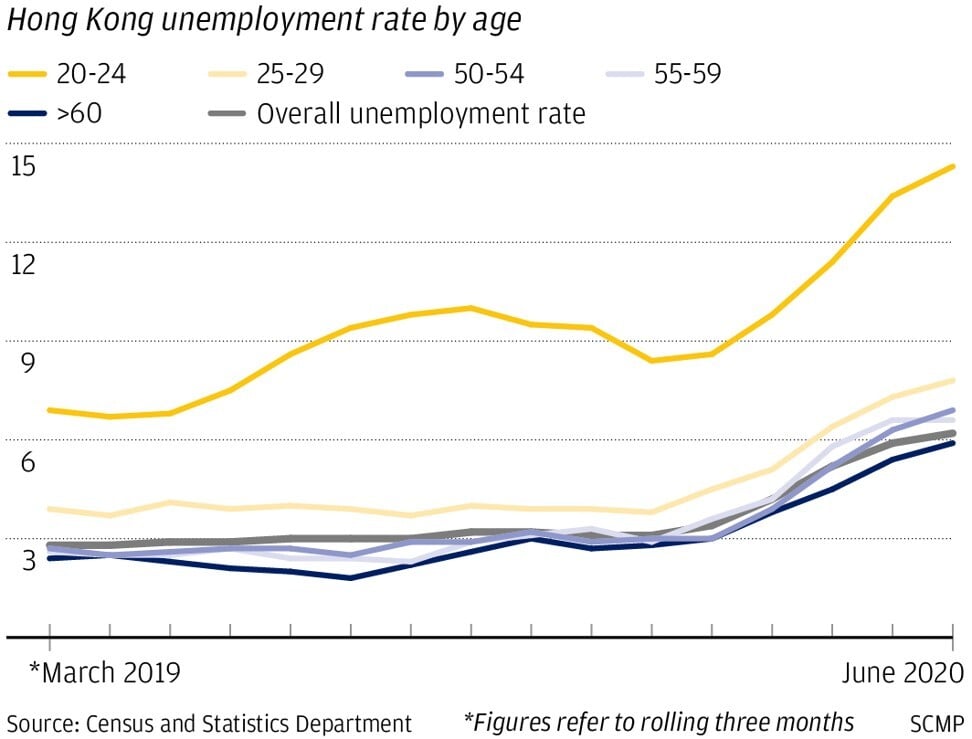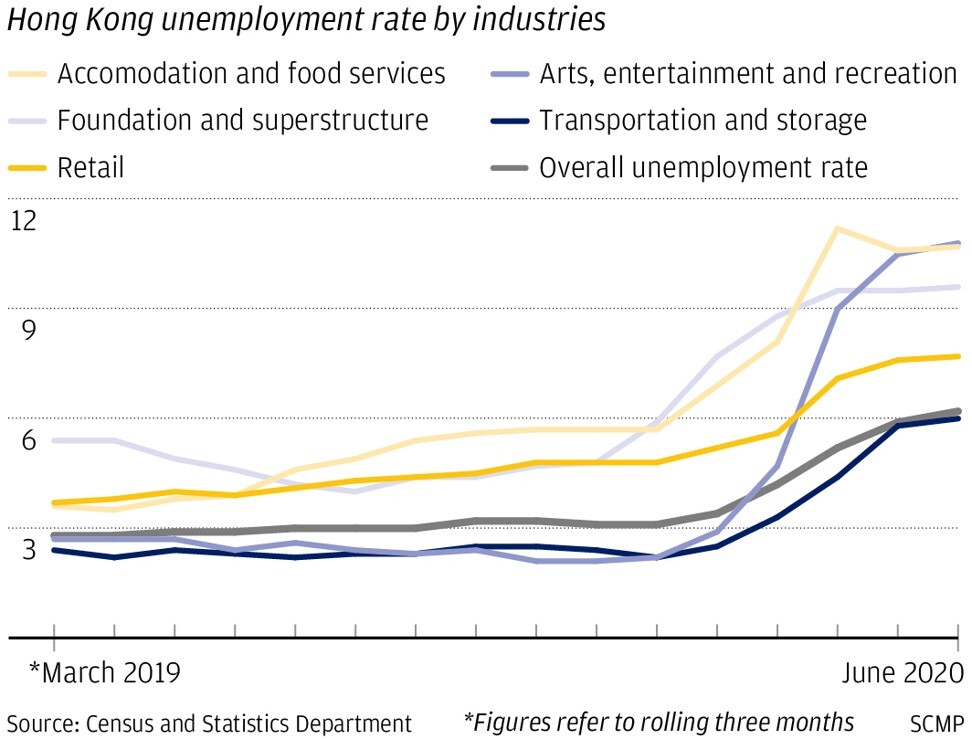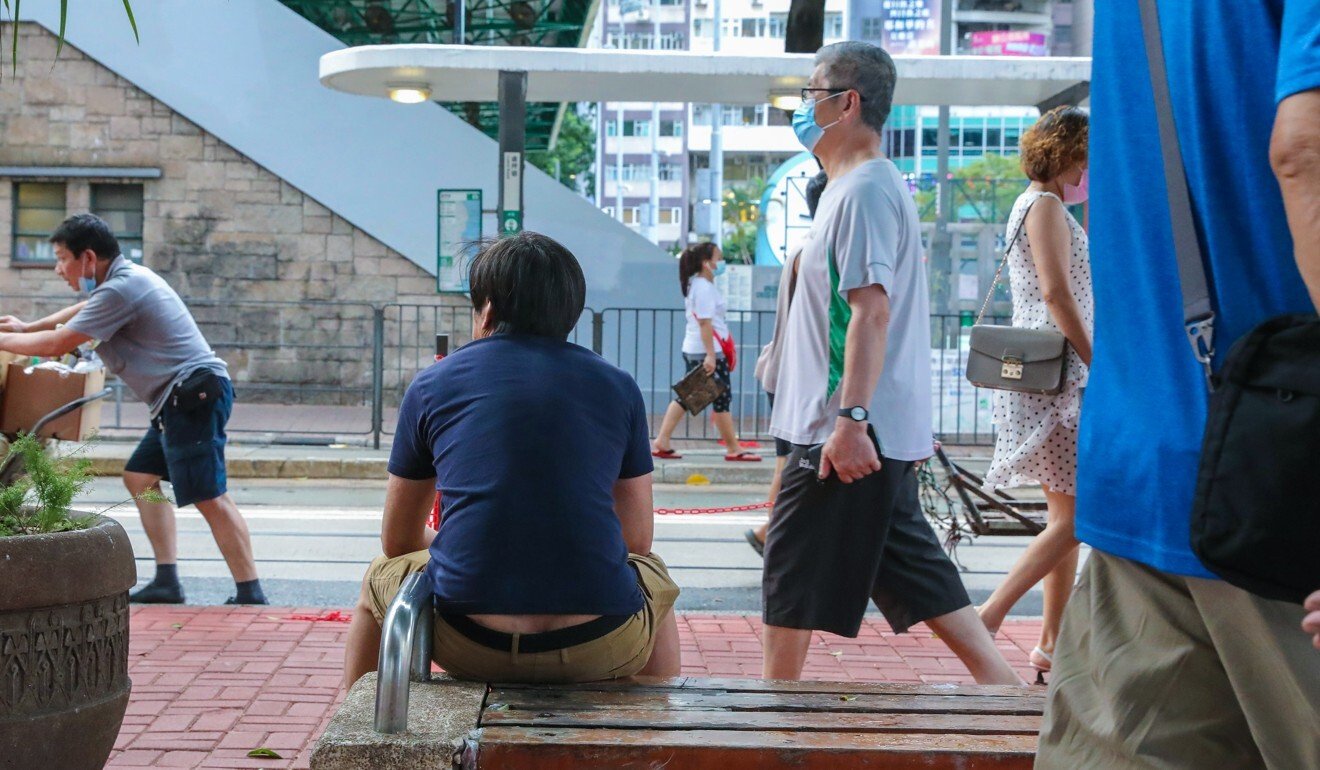
Covid-19 time bomb: Hong Kong jobs crisis sparks rise in serious emotional and mental health problems, experts warn
- Unable to cope with job loss, ‘some may become suicidal, turn to drugs, alcohol or gambling’
- Expert says groups hit hardest by unemployment are those aged 20 to 24 and 50 to 54

This is the second instalment of a five-part series in which the Post takes a look at unemployment in Hong Kong, as the city grapples with the aftermath of the months-long civil unrest and the pandemic. You can read part one here, part three here and part four here.
After Ken Yung lost his job in late January, he became irritable, lost his temper easily and kept picking quarrels with his wife over trivial matters.
Sometimes, they fought so bitterly their 10-year-old daughter would cry her heart out and beg them to stop. That made them cool down, only for Yung’s temper to flare up again.
“I kept having tantrums at my wife for no reason,” he said.
Yung, 51, used to earn about HK$60,000 (US$7,741) a month as a tour guide leading groups of holidaymakers to Japan. Then the coronavirus pandemic ended international travel, he found himself out of work and his earnings plunged to zero.
When his outbursts became unbearable, his 44-year-old wife threatened to divorce him. That shocked him into realising he needed help, and he started seeing a counsellor.
“My wife’s warning served as a wake-up call that I had to cope with my emotional problems, or she would go,” he said.
Rising unemployment in Hong Kong has created a ticking time bomb of emotional and mental health problems, experts warn, and Yung’s experience reflects what many facing a jobs crisis are experiencing.
In the wake of the pandemic, the jobless rate spiked to its highest level in more than 15 years, hitting 6.2 per cent in the three months to June. The number of unemployed grew to 240,700 for the period April to June, while the number of underemployed rose to 142,900.
There is no respite in sight, as a fresh wave of Covid-19 infections in July brought renewed tightening of social distancing as well as other restrictions.

Mental health experts say Covid-19 has taken a toll on Hongkongers’ psychological well-being.
They worry the emotional side effects of unemployment may lead to more serious social problems such as drug abuse, alcohol dependence, gambling addiction and domestic violence.
Calling for action by the government and community, some experts fear that as the crisis drags on, Hong Kong may see an increase in suicides too.
“Relationships have become more vulnerable during the pandemic – between married couples or between parents and their children – and emotions are more complicated if a family member loses his job,” said Dr Hui Lung-kit, a psychiatrist.
“There will be more people with depression and anxiety, which already took a turn for the worse last year during the months of social unrest.”
In a survey of 801 employees by the Mental Health Association of Hong Kong between May and early July, almost nine in 10 suffered from stress at work during the Covid-19 pandemic, with about half of the city’s workforce reporting symptoms of anxiety disorder.
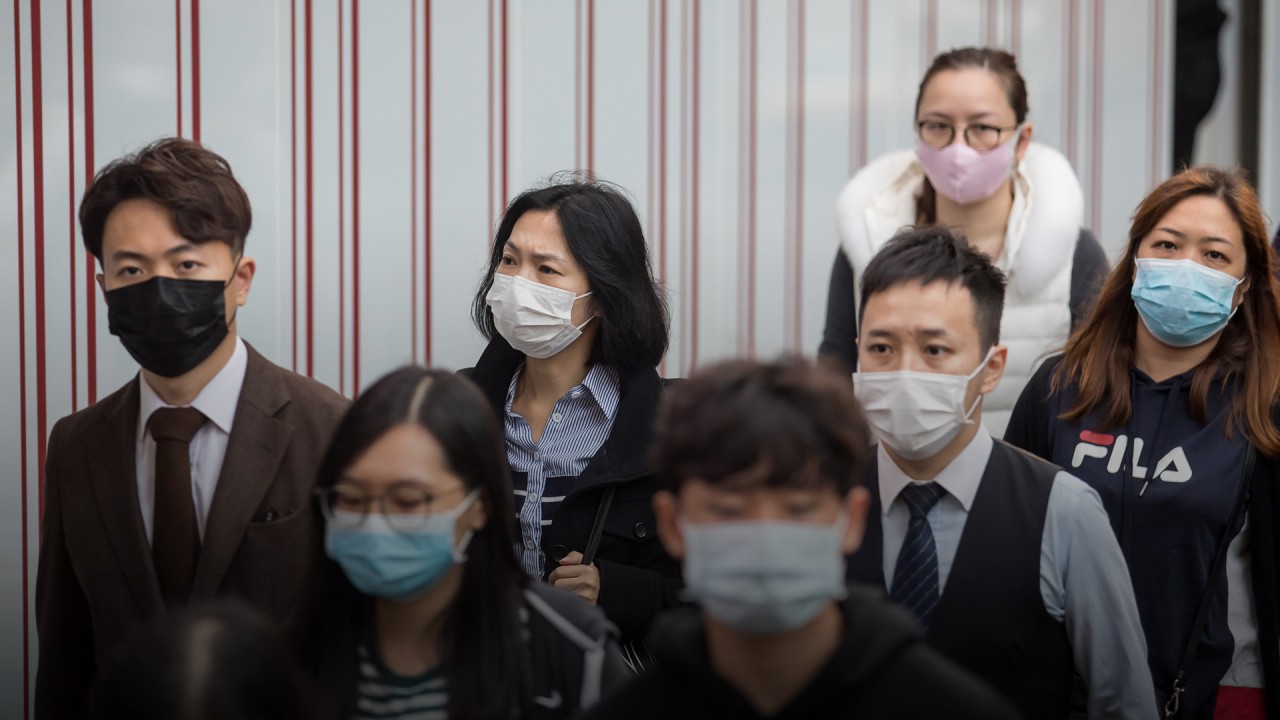
05:21
Companies need to foster caring and compassionate workplace culture during the Covid-19 pandemic
Dr Sunny Liu Kwong-sun, a psychiatrist and associate director of the University of Hong Kong’s Centre for Suicide Research and Prevention, is concerned the ongoing crisis might trigger a wave of suicides.
Most at risk are middle-class people facing severe financial hardship because of loss of work or bankruptcy, and elderly people who feel isolated by the prolonged pandemic restrictions.
Liu anticipated an increase in jobless people, with their emotional or mental problems manifested as excessive stress, outbursts of temper, and feelings of anxiety and depression that may sour relationships and even lead to families breaking up.
“Many are gripped by fear and panic, worrying they may lose their job or face bankruptcy. Those who are unemployed may feel hopeless about life, unable to see the future,” he said.
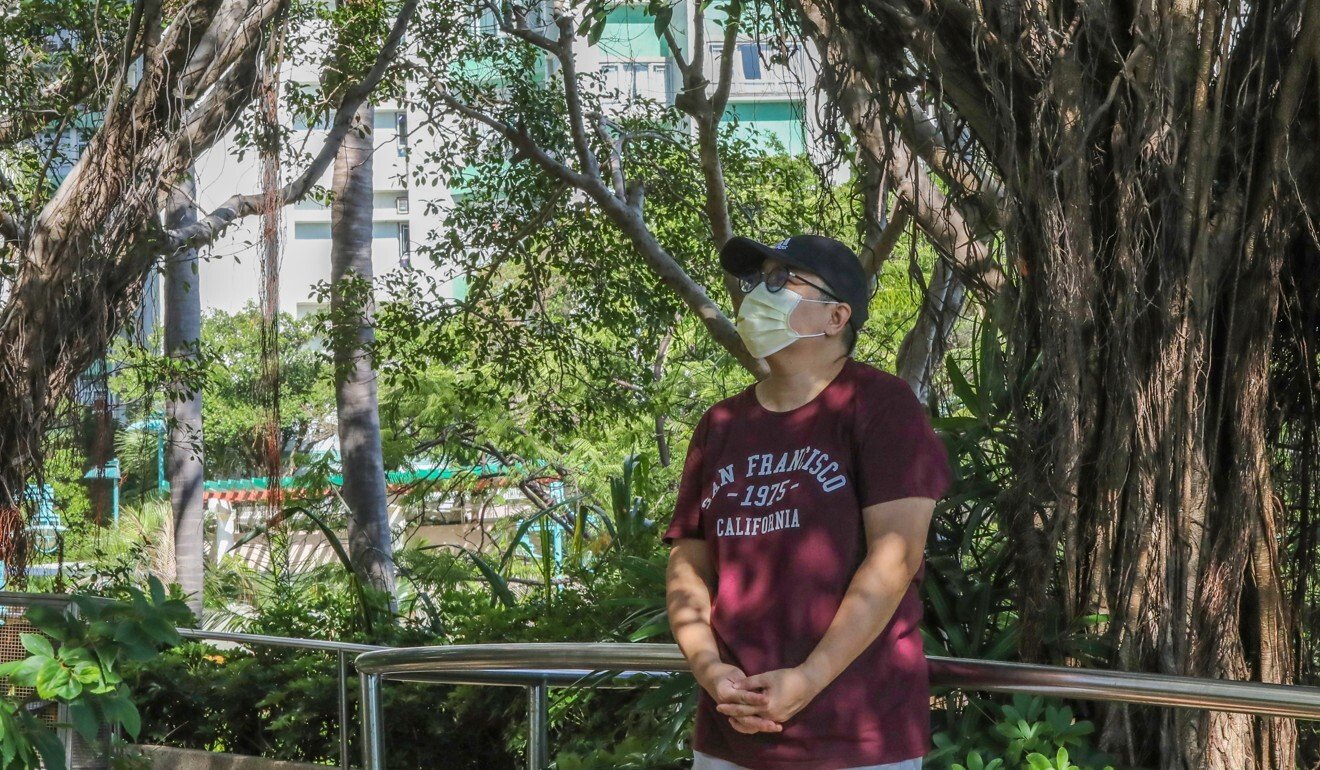
Liu has seen a rising number of new patients at his private practice plagued by financial hardship or unemployment. Some have been forced to drop plans to emigrate or send their children overseas for further education, while others are on the brink of divorce.
“Many are in a dire situation,” he said. “Some asked me to refer them to a public hospital as they can’t afford to pay.”
According to the Social Welfare Department, the average waiting time for new clients to see a psychologist is about 60 days, with 189 people currently on the waiting list.
Liu warned that in serious cases, people may have suicidal thoughts or turn to drugs, alcohol or gambling, or become violent at home.
His concerns are a reminder of the 1,264 suicides in 2003, when the severe acute respiratory syndrome (Sars) struck Hong Kong, infecting 1,755 and leaving 299 dead. The economy was hit badly, with unemployment reaching a record high of 8.5 per cent that June.
The suicide rate in 2003 rose to a high of 18.6 per 100,000 people. Last year, the rate was 13.25 per 100,000 people, with a total of 993 suicides, according to the Samaritan Befrienders Hong Kong.
The Covid-19 pandemic has infected almost 18 million people worldwide and left more than 687,000 dead. Hong Kong has recorded about 3,589 cases and 37 deaths.
Liu said Hong Kong had not yet seen a surge in suicides, perhaps because the government rolled out a raft of relief measures to help the needy. But he expected the pandemic to cause more psychological damage than Sars, saying: “The situation is alarming.”
Unlike Sars, which affected only some countries and territories and ended within months, Covid-19 has covered the globe, and there is no end in sight.
“The uncertainty is a major source of stress for people battling unemployment,” he said.
Prolonged restriction measures, the lack of social and physical interaction, frustration of staying at home, as well as fear of infection, have all created a sense of isolation that can exact a heavy psychological toll, he added.
To soften the mental health impact of coronavirus, Hong Kong must take better care of the vulnerable
Younger, older jobless react differently
Hui said the groups hit hardest by unemployment were those aged 20 to 24 and 50 to 54, with jobless rates of 14.3 per cent and 6.9 per cen, respectively, in June.
These were groups at different stages of life, each with their own ways of dealing with emotional setbacks.
“The younger group obviously comprises fresh university graduates, who tend to be perfectionists and will be upset when they fail to land their dream job quickly,” he said.
For older people, joblessness affected their self-esteem.
“For many in this group, their jobs determine their identity and the first thing they do when they greet people is to hand over their business cards,” he said.
Those who lose their jobs at this stage of life may end up feeling anxious and depressed, and this in turn may affect family relationships as well, he added.
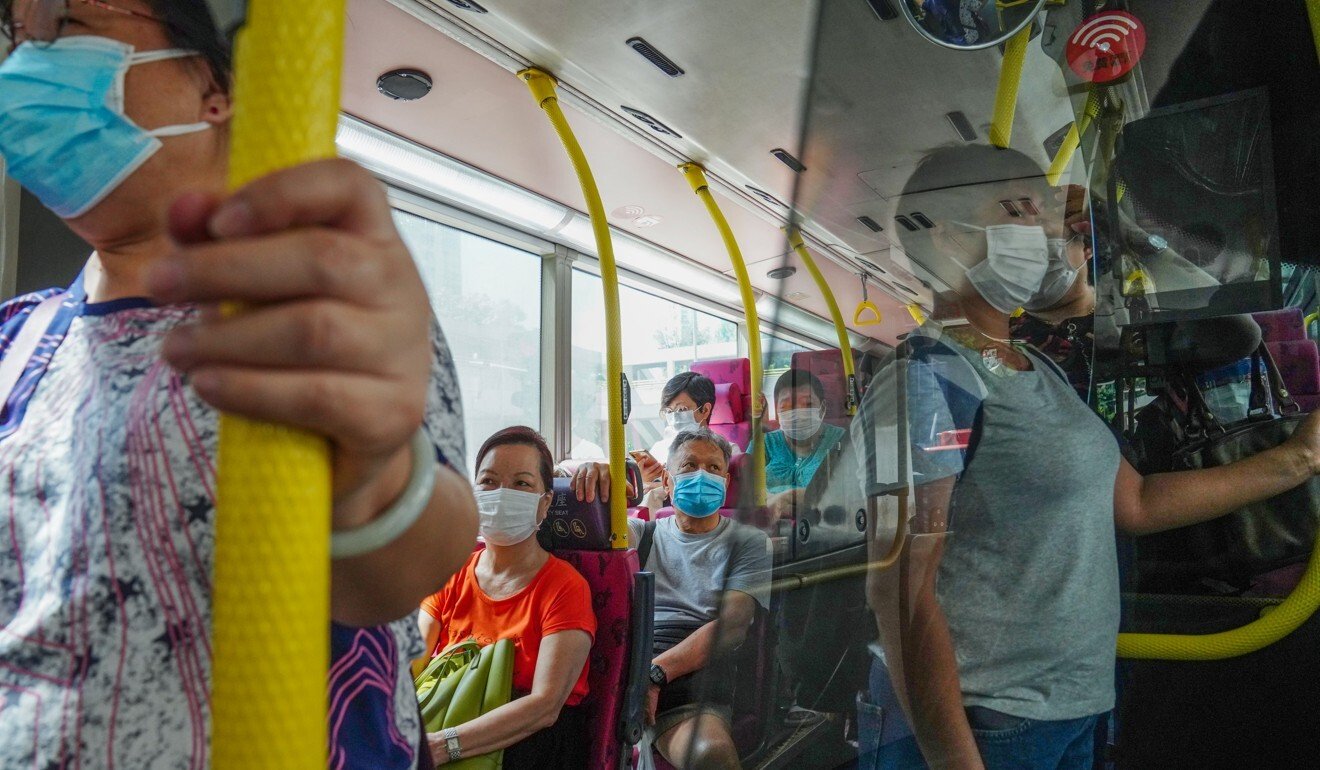
Yung recalled his despair after he stopped working.
“I was worried that my unemployment might last a long time. I didn’t sleep well. The financial stress was too much, as I had to cope with different types of bills,” the tour guide said.
Then came the fights at home and his wife’s threat to leave him. “I realised that I took out my stress and frustrations on my wife and if I continued to leave my bitter emotions unattended, I could lose my marriage,” he said.
He tried but failed to find other work, including as a security officer. That left him no choice but to start dipping into his savings and investments worth a total of more than HK$1 million (US$129,000).
The family had been saving to emigrate to Taiwan, a plan that is now on hold. He estimated their savings could last about two years, including paying their monthly rent of HK$18,000. He feared that if the economy did not improve, their savings would be gone.
Saleswoman Ho Chun-chun, 48, has also been on an emotional roller coaster since losing her job, suffering months of insomnia and anxiety.
She worked full time selling health care products in North Point, and was earning about HK$20,000 a month until she was told to take unpaid leave last October because of the anti-government protests.
Eight months of uncertainty and worrying over money followed before she was recalled to work in June, but business was poor and her pay was halved.
Then the third wave of Covid-19 infections arrived in July and she found herself without a job again. She supports her mother, who is in her 70s, and they live together in their own flat.
Ho said she managed to find occasional part-time jobs without health benefits, but found working during the pandemic stressful.
“I worry whether customers I come across are Covid-19 patients, and what will happen if I end up infected, unable to work and face a medical bill,” she said.
Experts said people in distress because of unemployment need support to keep going until their situations improved.
Darryl Parrant, a career business leader with American human resources consulting firm Mercer in Hong Kong, said when a breadwinner loses a job, it is not a one-person issue because the whole family is affected.
“When a key moneymaker loses a job, the chain effect will spill to mortgage payments, and financial support for parents and other family members,” he said. “This is growing in Hong Kong.”
He said Mercer worked with some bigger companies to provide outplacement services, which include counselling for departing staff to help them update their résumé, apply for new positions and make the transition to their next job. Such companies remain the minority in Hong Kong.
“The government’s wage subsidies for companies are a short-term solution,” he said. “It will be great to see companies, the government and some NGOs work collectively to come up with other support for the unemployed.”
‘A good listener can help’
Professor of mental health Samson Tse Shu-ki, associate dean of HKU’s Faculty of Social Sciences, urged the government to adopt a “3-P strategy” to address Hongkongers’ mental health issues, by promoting positive thinking, preventing those with early signs of mental distress from deteriorating, and protecting those diagnosed with a mental illness.
“The government could send out positive messages via celebrities or respected public figures who could go online to share how they overcame adversity and low points in life,” he said.
In prevention, he suggested encouraging people to seek professional help for emotional or mental problems, and hiring more social workers and counsellors to reach those who need help, including through door-to-door visits.
“Many are reluctant to seek help as they doubt the effectiveness of counselling,” he said. “But counselling and therapy do help a lot. A good listener can really help relieve stress and anxiety.”
For those with mental illness, he hoped the government could improve online or phone consultation services for individuals and their carers
Agreeing, Liu said: “The support and encouragement from family members and friends are also important. The government should nurture a caring culture in the community.”
He said jobless people need help to tackle negative feelings, and he always encouraged them to stay hopeful and not give up.
“As long as they persevere, people can bounce back from any setback,” he said, recalling cases of wealthy people who became penniless yet managed to recover.
“There was a rich businessman who went bust and didn’t mind working as a security officer,” he said. “After several years, he saved enough to set up his business again. There’s always an opportunity out there.”
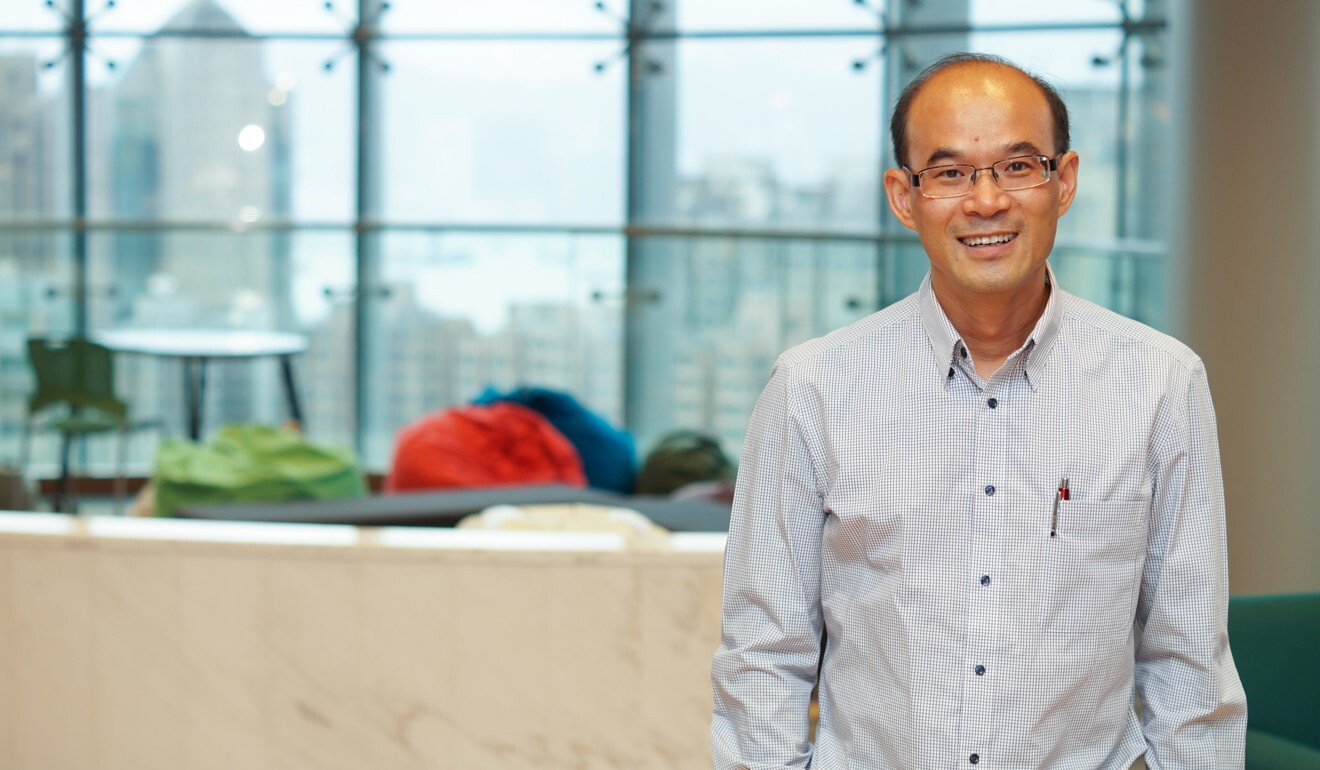
A spokesman for the Social Welfare Department said there were ongoing efforts to promote mental well-being, and it took part in a radio programme that provided useful information to “fortify psychological resilience in times of adversity”.
He said some government-backed NGOs run integrated community centres for mental wellness, providing one-stop support and social rehabilitation services for those with mental health problems, their families and carers.
Out of work and depressed, single mother Winnie Chow, 49, said government counselling services helped her to stay positive.
The part-time saleswoman said she had lived with depression for more than 10 years, and used to be unhappy because of her ex-husband’s temper tantrums. They divorced two years ago.
“At that time I would suddenly cry for no reason,” she said. “There were times I felt an overwhelming sense of helplessness and an urge to commit suicide.”
Chow, who has a 27-year-old son, a clerk, and a 14-year-old daughter, decided to seek help. The counselling from a doctor and follow-up sessions with a social worker helped her let go of her anxiety and negative thoughts.
She was earning about HK$6,000 a month until her employer told her last month to go on unpaid leave indefinitely. It was a setback, but she was trying not to let it get her down.
“I’ll just take it as a break,” she said. “So far the contributions from my ex-husband and my son are enough for me to get by. I’ll continue to look for other jobs and if I run out of money, I may apply for social welfare.”
Read part one of the series, in which we look at how some Hongkongers are tightening their belts and dipping into their savings.
